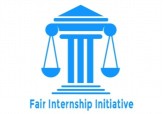For the first time, an independent report will reveal key data on UN internships, their conditions of work and analyse the effect of unpaid UN internships on job prospects.
The data has been collected through a Global Intern Survey, launched In August 2017, spearheaded by the Fair Internship Initiative (FII), an independent youth-led initiative focused on advocating for quality and accessible internships. The survey was developed together with the Geneva Interns Association (GIA), the Graduate Institute Students’ Association (GISA) and various Intern Boards in Geneva. The campaign received support from the Global Intern Coalition (GIC), a cluster of interns’ advocacy groups from around the world. Together with previous findings, the new data will be a key tool for organisations to better understand interns’ state of affairs.
The 2017 survey generated responses from over 900 current and former interns. Results from the 472 participants from within the UN system showed that 84% of interns are between the ages of 22 and 29 years old, 54% hold at least 1 completed master’s degree and 72% are female. Yet, 80.5% of interns responding to the survey are unpaid, similar to the 85.3% calculated from the 2015 survey. That same year, international attention was drawn to the UN practice of employing unpaid interns when media was made aware of a 22-year-old intern from New Zealand living in a tent in Geneva.
The UN has employed interns for many years; however, there has notably been a lack of consistent data on interns. It has often fallen on intern advocacy groups campaigning for the welfare of these interns to gather such data themselves. Beginning with a survey carried out by the Geneva Interns Association (GIA) between 2012 and 2013, followed by successive annual surveys carried out together with the Fair Internship Initiative in 2015 and 2016.
Over 80% of unpaid interns admitted that it would be impossible to do their internship without financial support from family, whilst 45% of those who are paid expressed the same sentiment indicating a disparity between their pay and the costs of living. Access to these internships appear limited to the privileged, with over 67% of unpaid interns (and 52% of paid interns) coming from high-income countries. The trend has been continuous, as back in 2013, the GIA Intern Survey noted that only 6.1% of their respondents rated their socio-economic status as “below average”.
The 2030 Agenda for Sustainable Development and the Sustainable Development Goals (SDGs) is clearly committed to reducing inequalities (Goal 10) and to ensuring fair working conditions, especially for young people (Goal 8). Now more than ever, the ethos of these goals needs to be reflected in the way in which internships within the UN are conducted.
The UN has launched campaigns on youth employment and the empowerment of youth in various initiatives; however, it does not seem to apply this principle to its internship policy. As more than 75% of respondents have indicated, their experience interning is described as working, or a combination of mostly working but also learning. Respecting the principles of human rights, all work should be remunerated. Half of unpaid interns reported that the experience, however valuable, has placed a financial burden on them or those supporting them. This is unacceptable, and it is the hope of the FII, GIA and GIC that the UN will take action to make their internships more sustainable, inclusive and reflective of the values of the organization.
link to Facebook Event
link to report Lifting the veil off UN internships
